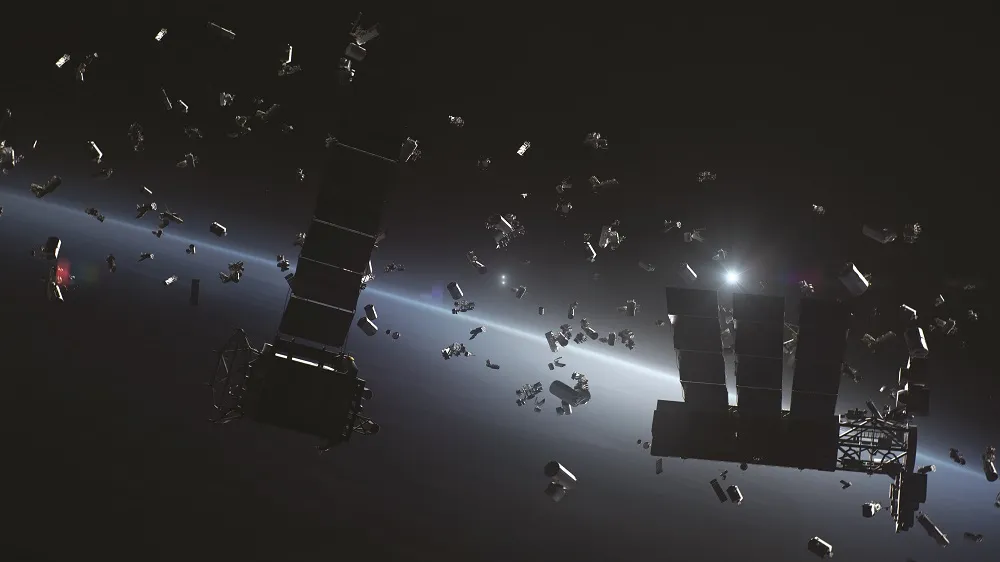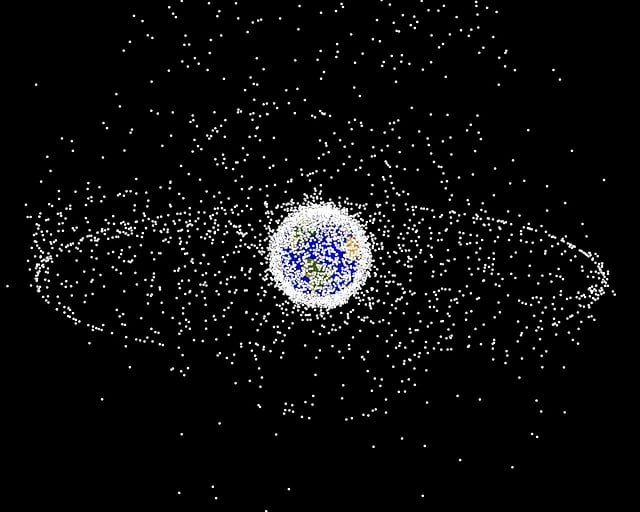News

Space Force Procurement to Focus on Smaller, Faster to Deploy Satellites
On July 27, 2023, the Senate Commerce Committee advanced the Orbital Sustainability (ORBITS) Act to the full Senate. The act aims to establish a demonstration program to address the growing amount of debris in Earth orbit. The over 8,000 metric tonnes of debris in orbit pose a threat to spacecraft, while large debris pieces reentering the atmosphere in uncontrolled fashion are a hazard on the ground.
As the challenges posed by orbital debris have become more acute, engineers around the world have worked to develop solutions. However, to-date, no practical on-orbit demonstrations have been made. If passed by the full Senate and the House, the ORBITS Act will direct NASA to fund a debris removal program, as well as transferring the responsibility of prioritizing debris for removal from NASA to the Commerce Department.

Orbital debris. Credit: iStock
Once given the go-ahead, NASA will work with commercial companies, like Motiv Space Systems, to develop and deploy the engineering technology that will be crucial to addressing the challenges posed by orbital debris. Already, Motiv has been working with NASA to demonstrate robotic technology for on-orbit servicing, which is a key stepping stone for capturing and deorbiting debris in a safe manner.
The ORBITS Act also includes provisions for better debris tracking and enabling advanced collision avoidance. Initially, these tasks will be handled by the DoD, but the plan is to eventually involve commercial companies in the role. Overall, the ORBITS Act will further expand the role of U.S. commercial companies in space exploration.
To assist with the removal of orbital debris, Motiv’s robotic systems can be deployed to capture objects of various sizes. Smaller pieces can be collected and deorbited together, while larger pieces or entire satellites can be fitted with individual thrusters for deorbit. Motiv’s technology will provide the manipulative ability to both gather small pieces and attach propulsion systems.
Motiv’s xLink modular robotic system can be customized to suit the needs of different missions, providing the exact capability for a specific mission, which will reduce costs and allow for better targeting of different types and sizes of debris.

Orbital debris map showing the extent of debris around Earth. Credit: WikiImages
As space exploration continues to advance, the amount of orbital debris will also grow. This debris not only threatens operational satellites, potentially leading to more debris, but uncontrolled reentry of large pieces of debris poses a danger on Earth. By advancing the ORBITS Act, the U.S. Senate is committing to addressing orbital debris. In including provisions for commercial companies, like Motiv Space Systems, to play a key role in removing this debris, Congress will reduce costs and help secure the future of space exploration.